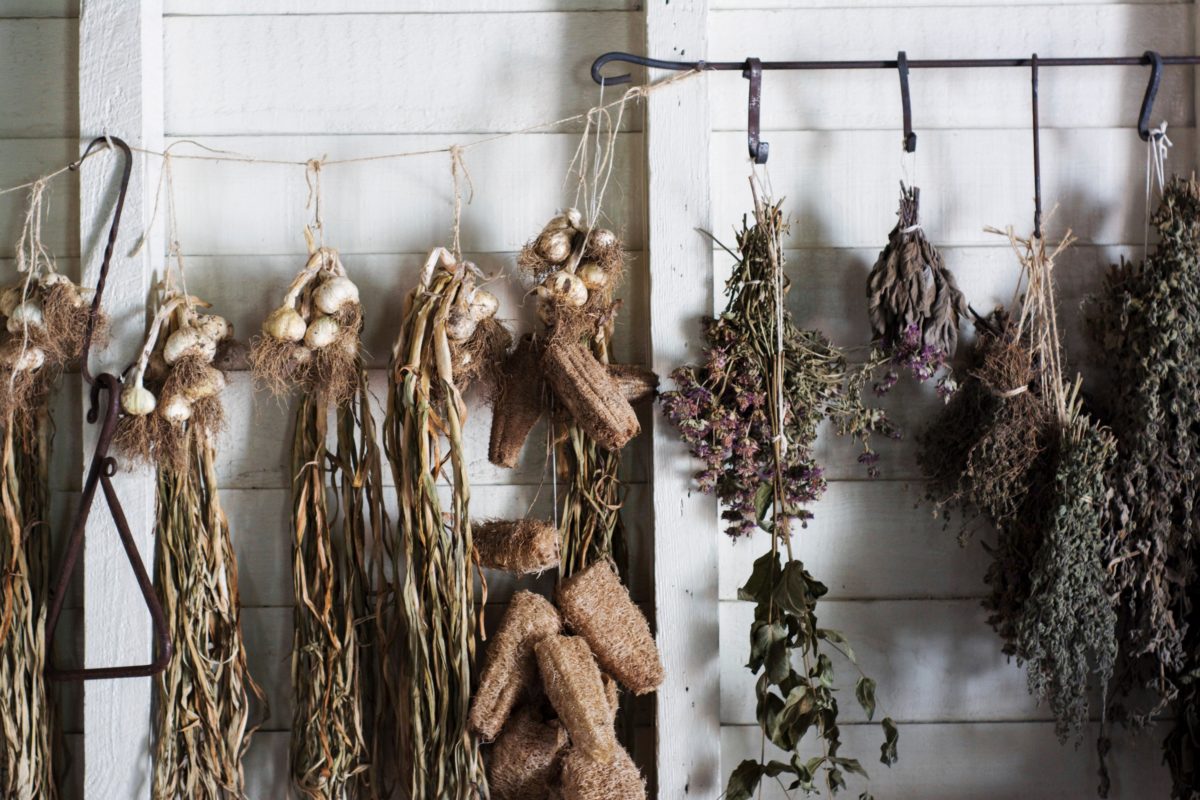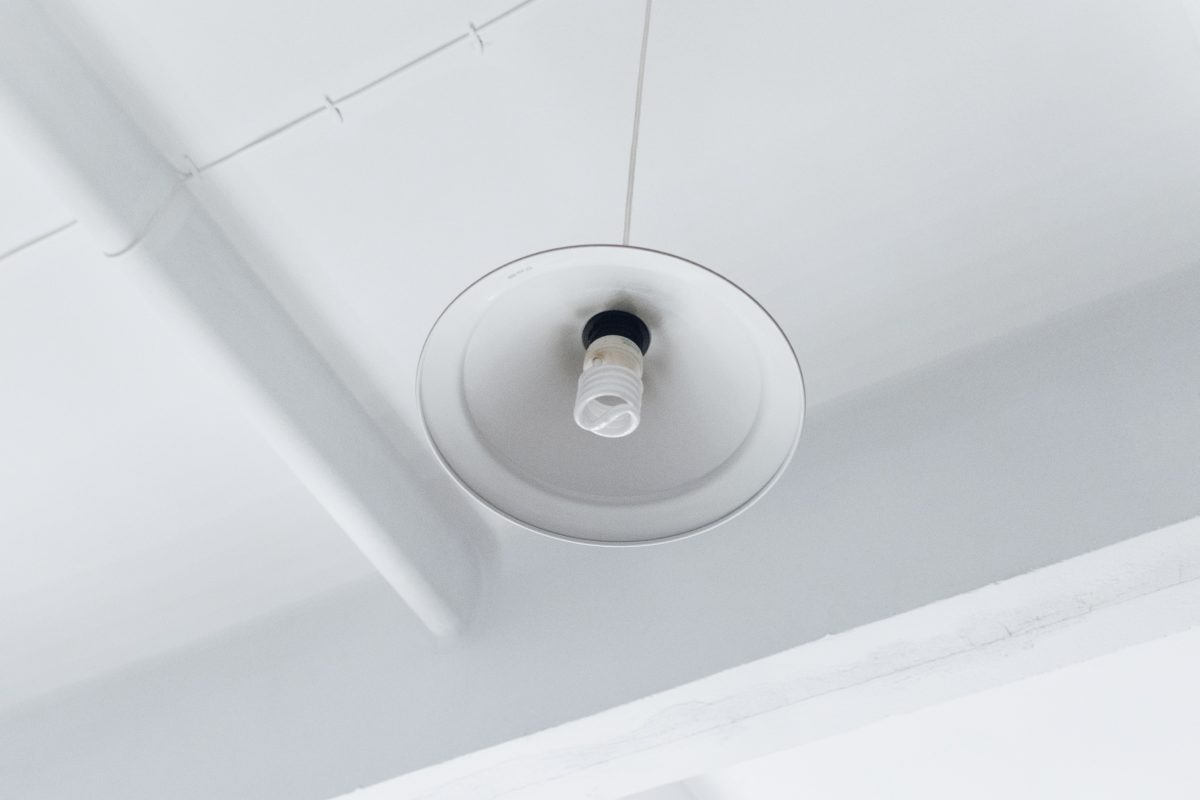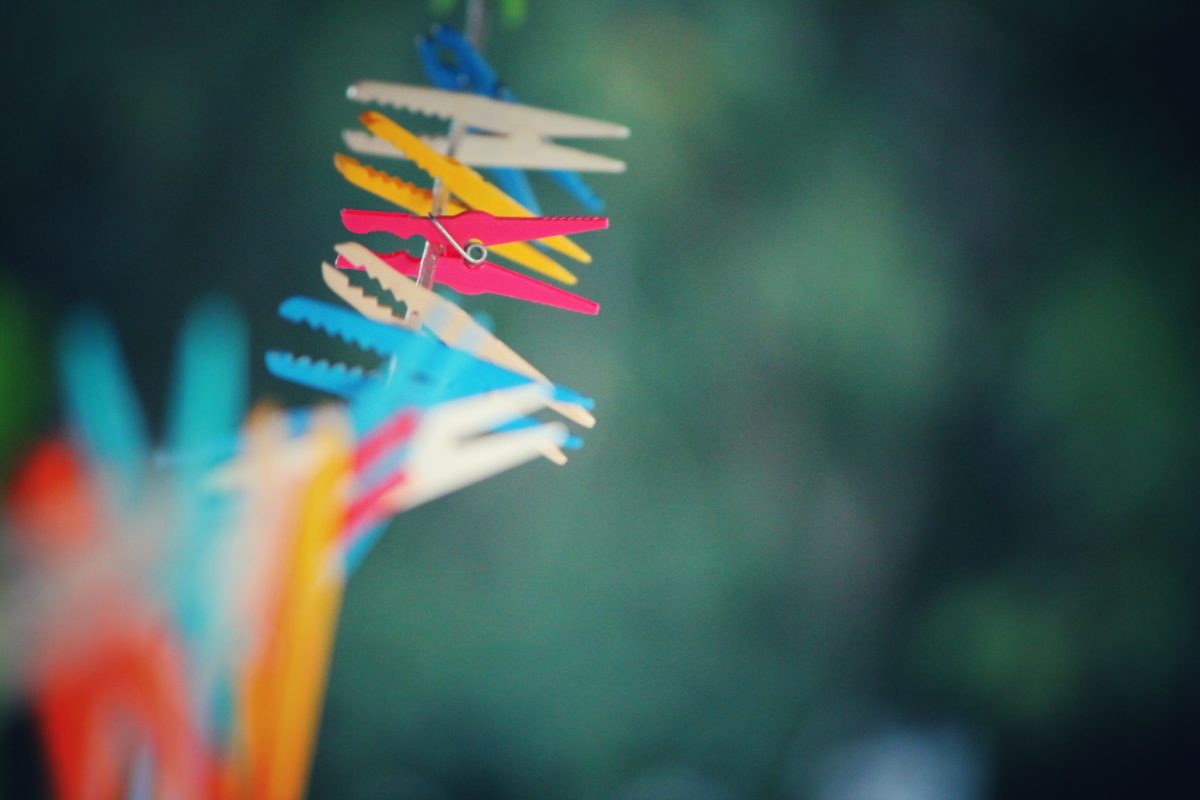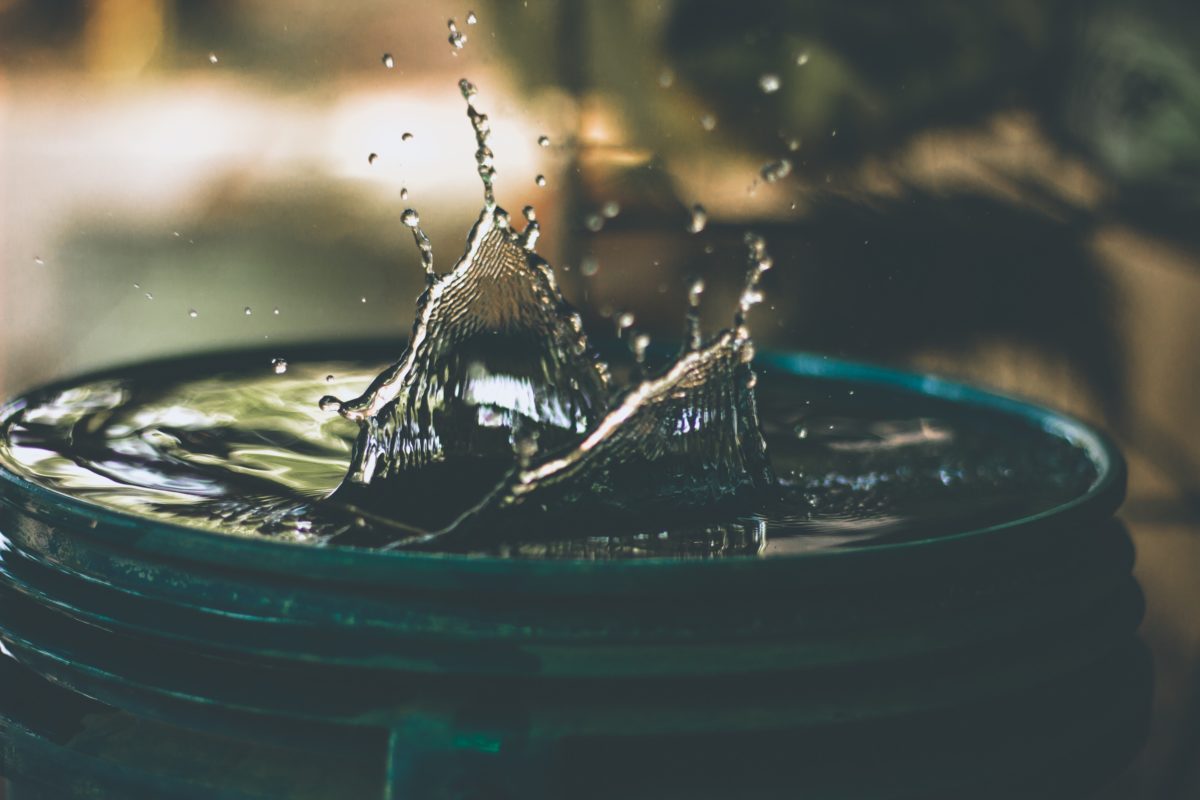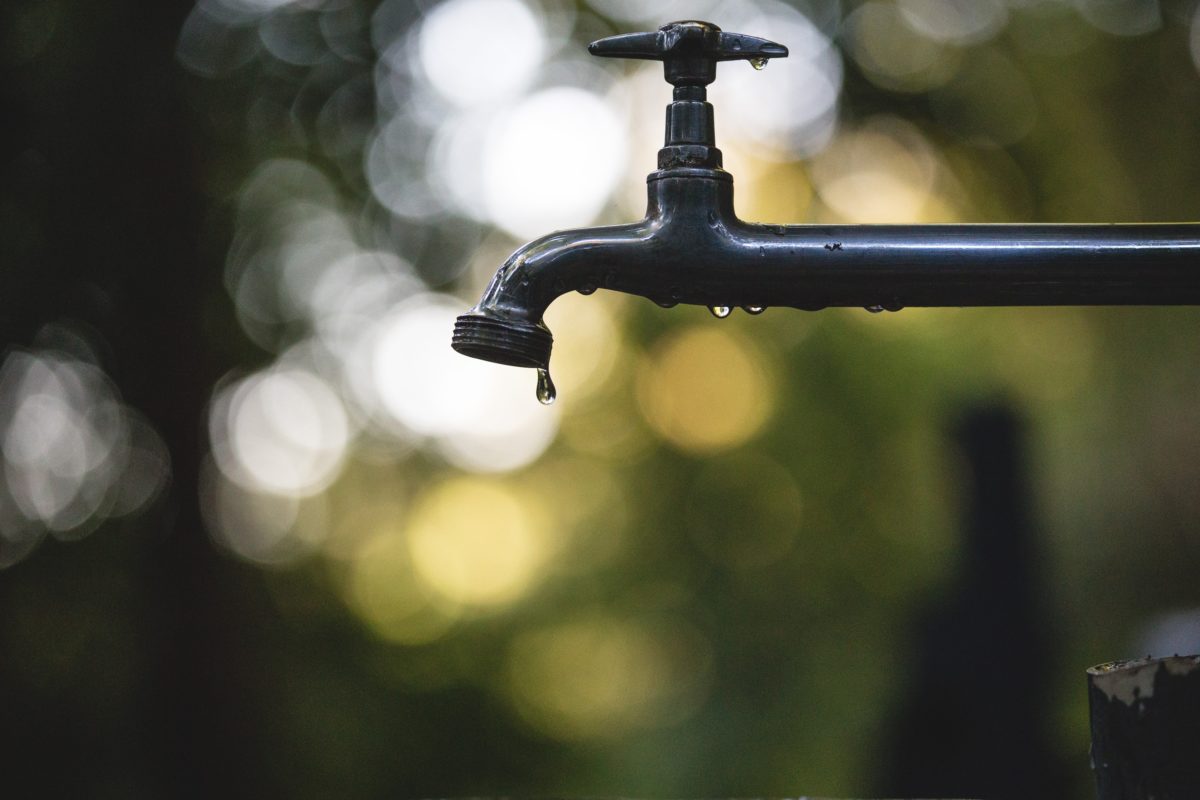New Year, new you. The "green movement" became very popular in the last couple of months and we can only say - finally! Thinking about our imprint on the Earth is very important, and there are many ways in how we can provide sustainable and better living for ourselves and the generations to come after.
So if you are hoping to make a greener lifestyle part of the plan for this year, here are a couple of very handy, season-specific tips on how to help the environment and save money as well!
SPRING
Bathe less, shower more. Heating water consumes a lot of energy, costs a lot of money, and too much bathing can cause health problems, too! Chlorinated water is safe to drink, but when you breathe the chlorine from the hot shower steam, you inhale chlorine in relatively high concentrations which are a hazard to your health! Also, keep in mind to limit your shower time — are you saying that it's too easy to forget about the time when enjoying the water? Then consider using a shower timer and installing a low-flow shower head that uses only half as much water than a regular one.
Buy unrefined & raw sugar (not brown sugar!). When it comes to choosing which kind of sugar to use, there is no doubt that unrefined raw sugar is the best choice both for your health and for the environment. White sugar is completely devoid of all nutrients and is made from raw sugar using a number of chemical manufacturing procedures aimed at bleaching, purifying and filtering to make the sugar snow-white. Oddly, the worst choice is brown sugar which is made by mixing refined white sugar with molasses syrup, then drying it again, so it only adds another step in the process. The shorter the food processing sequence, the lower air pollution and waste produced!
Use houseplants as air purifiers. While all plants are capable of purging toxins from your stale indoor air, a research by NASA showed that some houseplants are exceptionally efficient in filtering out toxins, pollutants and the carbon dioxide from the air we breathe. Philodendrons, spider plants and pothos are most efficient in removing formaldehyde, while gerbera daisies and chrysanthemums are quite successful in battling benzene, a potentially dangerous carcinogen. But beware, some of these plants can be harmful to pets or little children, so make sure to take safety precautions.
Share a car ride with your colleagues. Car sharing has been a popular topic for a number of years, also actively promoted by the authorities. An average car commuter drives around 20 kilometres a day. Cutting that by half through car sharing saves around 400 kilograms of carbon dioxide over one year or about 170 litres of petrol. If you're not participating in a car sharing scheme run by your company, take the time to organize your friends or colleagues with similar commuting habits and save money, have a chat with your driver or passengers and help the environment.
Grow your spices & herbs. They look good, they smell nice, they often don't require much care and your own fruits always taste the best! So why buying those aluminium/glass packed expensive herbs and species, when you can have it growing on your window sills?
Replace old refrigerator & washing machine. Refrigerators older than 10 years are highly energy inefficient. Running one can cost you $70+ per year, so the expenses for a new one can be replaced quite fast. Same goes for washing machines — modern, front-loading machines are usually more efficient than the old, conventional, top-loading ones. Due to their construction, they are able to save about 40% of the water needed to wash your clothes while saving 50-60% of energy each load. Sounds pretty good, doesn't it?
Buy more bins. Make it easy to recycle paper and plastic at your home or at work by simply placing an extra bin near you. Also, talk to your boss about putting a large bin for electronic waste (such as old fax machines or computers) in a central spot and contact a recycling company to empty it regularly.
Put plastic bottles in your toilet tank. This little trick may save more than 30 litres of water per day! Put some sand or pebbles inside of the plastic bottle to keep it submerged. Then fill the bottle with water, seal it, and put it in your toilet tank. Be careful to put it away from the operating mechanism. However, make sure that some water remains in the tank — otherwise, the toilet might not flush properly and users will hold the lever down too long or do additional flushes to deal with waste. You might also consider buying an adjustable toilet flapper, which enables you to adjust the flush rate to an appropriate setting. And if you can install a brand new toilet, consider buying a "low flush" one. These toilets can save 70% of water used for flushing and cut overall indoor water use by about 30%.
Invest into installing LED lights. Next time you need to change a bulb, consider switching to a LED light. There are plenty of these in electrical appliances stores nowadays. LED lights are far more expensive, but last up to 50 times longer than ordinary bulbs and save 80 to 88% on energy consumption. Unlike fluorescent bulbs, LED lights doesn't contain highly toxic heavy metals, which represent a health hazard, and their light spectrum is closer to natural daylight.
Install motion sensor lighting. If you already switched to a LED light, try to push it a little bit further. Having an outdoor light lit all night long is a very bad idea, both for your wallet and the environment. Installing a motion sensor won't cost you any comfort at all, on the contrary, you won't even have to touch the switch. You can also install them indoors in areas of low traffic, like stairwells, laundry room or garage. There are even outdoor solar-powered kits, so you'll be saving money, helping the environment and improving security for an investment of about $100! Be sure to check out our article if you want to learn more about solar energy.
SUMMER
Do not wash in hot water. Modern washing machines and detergents can clean your garments perfectly even in tepid water. If you don't believe, try it once, and you will see that you are saving a lot of energy and money.
Recycle eye-glasses. Maybe your old glasses are not fancy anymore, but they can help millions of people with eyesight problems. According to the World Health Organization, about 87% of the world's visually impaired people live in developing countries. Your unwanted eyeglasses can change their life quality substantially. Old glasses are definitely not the major pollution source, but recycling them can give you an extra good feeling.
Pick up litter. We assume you pick up your own litter, but what about the rest? Why not pick up the plastic bottle and throw it into a dustbin which is usually few steps away? If every citizen did this once a day, our city would look marvellous.
Use shopping lists and stick to them. It might seem trivial, but have you ever gone shopping to buy some bread and milk, and afterwards returned home with plenty of stuff you never intended to buy in the first place? Sometimes it's hard to resist our temptations, but it helps to prepare a detailed shopping list and adhere to it. Buy only the things you really need, that way you reduce the potential waste of old groceries that have accumulated in your home.
Switch vegetarian for one day. Meat is a huge energy consumer and CO2 emitter. Meat and livestock industry emits about 9% of human CO2 and production of each kilogram of beef requires around 13-20 000 litres of water. If you love burgers, no need to sacrifice them, but why not to have at least one day a week completely meat free? It will help you to cope with your blood pressure and cholesterol too. The summer is also the perfect time to try this out because we are not eating heavy meals anyway due to high heat. And if you really want to push yourself, try being a vegan for one day!
Make your own household cleaning supplies. It's truly the greenest way to clean your home! Most of your household can be cleaned with a combination of hot water, vinegar and baking soda or washing soda. Lemons are great natural cleaners as well. You can add a few drops of essential oil if you like the scent. This way, you're reducing the amount of waste, and you won't have to worry about any toxins you may otherwise be spraying around your home.
Do not use plastic bags. Every year, about 500 billion to 1 trillion plastic bags are consumed in the world and it takes about 1000 years to dissolve just one! Switch to inexpensive, reusable shopping bags from cotton or recycled plastic bottles — leave them in your car, purse, or in a visible place, so you don't forget to take it with you. Carrying your shopping in a nice bag is more comfortable, safer, and greener of course!
Say no to packaging. Now that you are not using plastic bags it's time for the next step. When you leave the house, bring a refillable container for beverages and food you can use through the day. And if you are going shopping, use these containers for groceries sold in bulk, like nuts or sweets, and look for items with less packaging. If you really need to get extra packaging, always try to go for paper bags — especially when you're buying meat, pastry, and produce. Paper is less harmful than plastic and looks much better as well. Learn more tips on how to lower your waste at home.
Turn off standby mode. The tiny red LED light consumes only a few watt-hours per day you say? Stand-by power amounts for 5-10% of household electricity consumption and creates about 1% of greenhouse gases. EU estimates that in 2020 European standby power demand will reach the size of the overall electricity demand of smaller countries like Greece or Portugal. Switching off standby mode means not only that you cut greenhouse gas emissions, but you also cut your electricity bills. Your annual saving can get over $100, depending on how many appliances you have in the house. If you are bored to turn off all the appliance on and off manually, you can buy several multiple sockets with switches, which will turn this process into a matter of few seconds. You can also buy one with power surge protection for a better feeling because it protects your appliances against lightning as a small bonus!
Hang clothes to dry. This technology was used by our mothers and imagine, it still works! If you hang your washing out, not only you don't need to spend electricity to dry it, but your clothes will get the fresh smell of sun and wind — something you can never achieve with an electric tool.
FALL
Use both sides of the paper. Your printed monthly report became obsolete and it's time to throw it away? Why? Turn it to the other side and use it for your notes, or for informal printing. Or give it to your kid for crayon masterpieces!
Install single lever tap. When thinking of bathroom and kitchen reconstruction, be clever in advance and go for single lever taps. This great invention saves water, time and nerves. You can adjust the temperature and stream with one single movement, and you can turn the water off and on again with the very same temperature as before.
Turn the water off when you brush teeth. There is no need to have water running while you are brushing your teeth, and the situation is even worse since most of the people use hot water. After installing the single lever tap it's just one simple move of the hand, so why not to do it?
Don’t use AC in a car for short rides, and ideally not even for the long ones! Rapid temperature changes do no good to your health and it rises gas consumption by around 1-2 litres per 100km driven.
Buy a rain barrel. You don't have to pay for all the water you use – get a few barrels and start storing rainwater in them! Rainwater can be used in many ways. First of all, it's much better for gardening than the water from your plumbing. You can also use it for washing your car, mopping the floors, or even flushing the toilet. There is an extensive offer of barrels in shops, or you can make your own – just don't forget about children safety and insect protection.
Take a hybrid taxi. Not only does a hybrid car save one-third of the total greenhouse gas emissions, it is also cheaper to operate! A regular taxi driver could save as much as $1,000 per month on gas with a hybrid. So don't be shy and next time you'll need a ride, ask for a hybrid.
Donate instead of dumping. North America has a reputation of a wasting, throwaway society in the rest of world, so don't live up to it! Tons of things like clothing, books, toys, durable goods or even canned foods end up in the garbage every day. Think about donation first. Ask your friends and when they're not interested, the Salvation Army, one of their thrift stores or a Goodwill store might be interested. Many churches and charities will be also happy for your participation. You won't just put you "waste" to good use, but also help these organizations that care about the less lucky including over 5,000 homeless people in Toronto. You can start by putting reusable things you would have normally thrown out in a box in your garage and take them to your nearest donation place once in a while. You could even make a sweet family tradition out of it!
Reduce cleaning waste. Using an entire roll of paper towels isn't the most eco-friendly way of cleaning, so try using reusable microfiber cloths or sponges instead. The same applies to your mop — ditch your disposable one for a reusable one.
Read the news online. Approximately 6.4 million newspapers are printed in Canada every day, and most of them never get recycled. If you don't like the idea of contributing to this huge waste of trees and natural resources, try reading the news online. The majority of newspapers now have a free online version, so you won't miss any important news – on the contrary, online news is much faster, as it's being updated continuously.
Borrow books from public libraries instead of buying new ones. Now that you are reading the news online it's time to move to the books. How many books do you have in your home library? How many of them have you read more than once? It takes 15-20 trees to make paper for an average-sized book. So much paper can be wasted by the unread books, yet so little can be done to save the trees.
WINTER
Put weather strips on your doors & windows and seal any air leaks. Find the leaks by wetting your hand before and feeling the airflow and. Then seal the leaks with caulk. Rather than saving money on this one, use good quality caulking compounds only – ask about it at your local home center or hardware store.
Clean the chimney & the fireplace and install fireplace glass doors. Not only are glass doors safer than fireplace screens, but they also do an excellent job of saving energy. Acting as a barrier between your home and the chimney, glass doors limit the amount of air released from your home year-round and allow you to better control your home temperature. Cool air won't escape your home through your chimney during the summer months, reducing the amount of energy your air conditioner needs, and your fireplace glass doors will keep the precious warm air inside your home during the chilly winter season, reducing the burden on your furnace. In the end, you'll be saving the environment while saving money! For more tips on how to make your home greener click here.
Turn down your thermostat. Speaking of the temperature... Keep thermostats no higher than 20-22 C (68-72 F). When people are not present or at night, you may decrease the temperature even to 15 C (59-60 F). Consider installing a programmable thermostat to regulate temperature at different times of the day & night automatically.
Let the sun heat your apartment. An even better way is to take advantage of the sun's heat – open the curtains and blinds of the west and east-facing windows to warm your apartment. You'll be surprised to find out how much it helps – and helps kill germs, too. Closing your curtains and blinds at night also prevents heat to escape and keeps your home warm at night as well.
Drain your outdoor faucets. To avoid splitting because of the frozen water, shut off the valves on all exterior faucets and open the drain cap. If you need to use it, consider purchasing frost-proof faucets.
Make sure your furniture doesn't block any registers or vents. On the other hand, you might want to put furnishing alongside with the coldest walls for additional insulation.
Avoid wet basements. Make sure you remove all dirt that could clog your gutters and downspouts, as it causes splitting which can damage the walls. Also, check if you have enough downspouts – there should be one for every 35 feet of gutter. If your downspouts happen to go below the ground, redirect them to discharge at least eight feet away from your home. Many times, the below-ground portions are clogged or broken.
Close rooms which you don't use. It makes it easier to warm up other areas of your house – don't waste valuable heat when there's no reason for it!
Turn on your ceiling fan in reverse direction. Ceiling fans can save you energy even in the winter! Did you notice that nowadays, most of them are made with a little switch that can change the direction in which the blades rotate? It's there for a purpose. In the summer, counterclockwise rotation makes that cooling breeze which can also cut your air conditioning costs by as much as 40%. In the winter, warmer air from your heating always rises and tends to pool by the ceiling, where a fan switched to a clockwise rotation creates an updraft sending it back down to you. This little trick can save you up to 10% of your heating costs, so the colder the winter, the more you save!
Recycle your Christmas tree. When the time finally comes to undo the bulbs and other ornaments, before the Christmas tree's needles end up all over your place, think about a proper disposal of your holiday's symbol. The City of Toronto collects 100,000 natural Christmas trees each year and turns them into compost. Just check your collection calendar for Christmas tree collection day or call 311. They run until late January.
LR00LR



